Labour: Long Bailey defends Brexit vote process
- Published
- comments
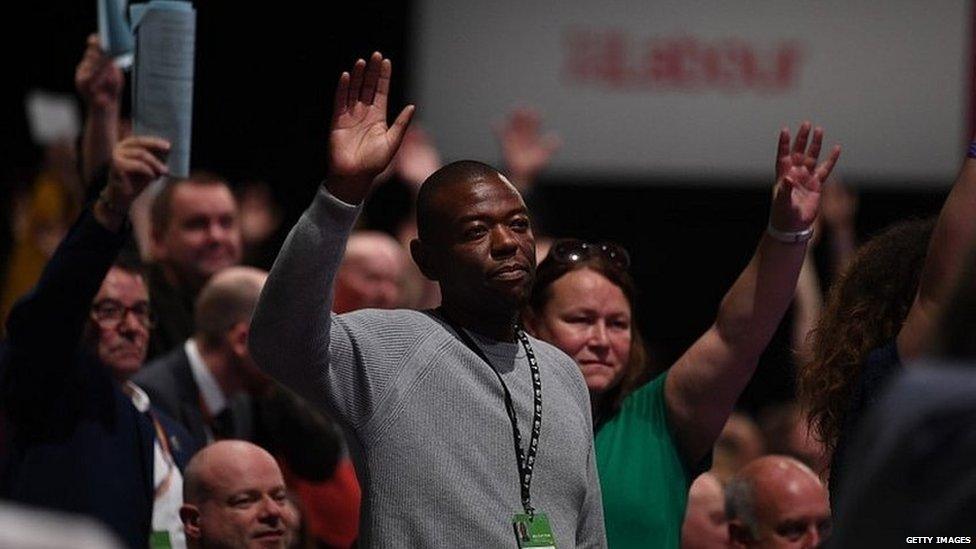
The votes were decided by a show of hands
Labour's shadow business secretary has defended the process which saw Labour activists back Jeremy Corbyn's preferred Brexit policy.
Rebecca Long Bailey said the official overseeing the vote would have raised concerns if necessary.
Members voted for a Labour government to stay neutral while negotiating a new EU deal, and rejected a motion positioning Labour as a remain party.
The decision was not challenged by members as conference began on Tuesday.
It comes as deputy leader Tom Watson prepares to address the conference.
The start of the conference saw an attempt to oust Mr Watson, but the motion, which aimed to abolish the deputy leader position, was dropped.
On Monday, Labour members were given the option to back three separate Brexit motions - the first of which reflected Jeremy Corbyn's position, promising a referendum on a choice between a deal he will negotiate with Brussels or staying in the EU, with the party not making a decision on how it will campaign until a special conference.
There was confusion about the outcome - with presiding official Wendy Nichols coming under pressure from all sides
Another motion which was promoted by grassroots activists pushed for an unambiguous stance, calling for Labour to campaign "energetically" to Remain.
This was rejected in a show of hands - but after the results were announced by trade union official Wendy Nichols, there were charged scenes in the conference hall.
'Very capable'
Several delegates called for the votes to be counted individually, suggesting the outcome of the Remain motion was much closer than officials had suggested.
Ms Long Bailey defended the process and said Mrs Nichols, a member of Labour's ruling body was a "very capable chair" and "if she had any concerns about the vote then no doubt she would have raised it and would have called for the vote again".
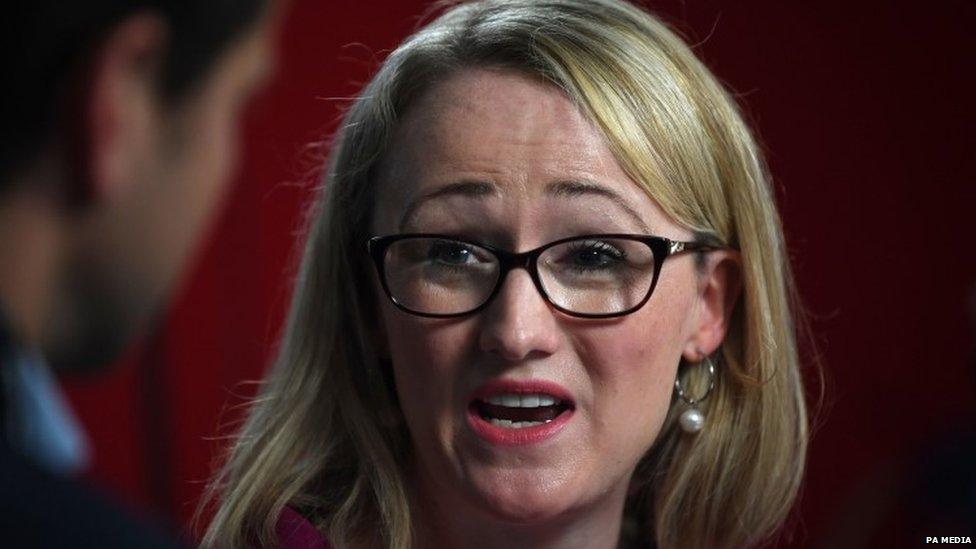
Rebecca Long Bailey said the process was legitimate
Asked how shadow Brexit secretary Sir Keir Starmer, who supports Remain, could go to Brussels for a Labour government and negotiate a Brexit deal, she told the BBC "Keir is a pragmatist" and "he might believe in remaining but he will still try to get the best possible deal".
Labour's position on Brexit has dominated the conference agenda, with huge disagreements over the issue.
Monday's result was a major boost for the Labour leader, who was backed by the majority of Labour's 12 affiliated unions, including Unite and the GMB.
Unison had broken ranks with other unions to back the Remain motion.
Other policies
Away from Brexit, Labour is pledging to invest billions of pounds in electric car production and offshore wind farms to accelerate the "green industrial revolution".
Labour has also announced a pledge to introduce free personal care in England for over-65s, so they will not have to pay for help with dressing, washing and meals.
There have also been commitments to end in-work poverty within five years and to move to a four day, or 32-hour, working week within a decade without any cut to pay.
Other new policies likely to feature in the party's next election manifesto, including pledges to:
Scrap Ofsted, which it called "unfit for purpose", and replace it with a new schools inspections system
Make NHS prescriptions free in England, bringing it in line with Scotland, Wales and Northern Ireland
Force large employers to provide flexible working hours to women experiencing symptoms of the menopause
- Published23 September 2019
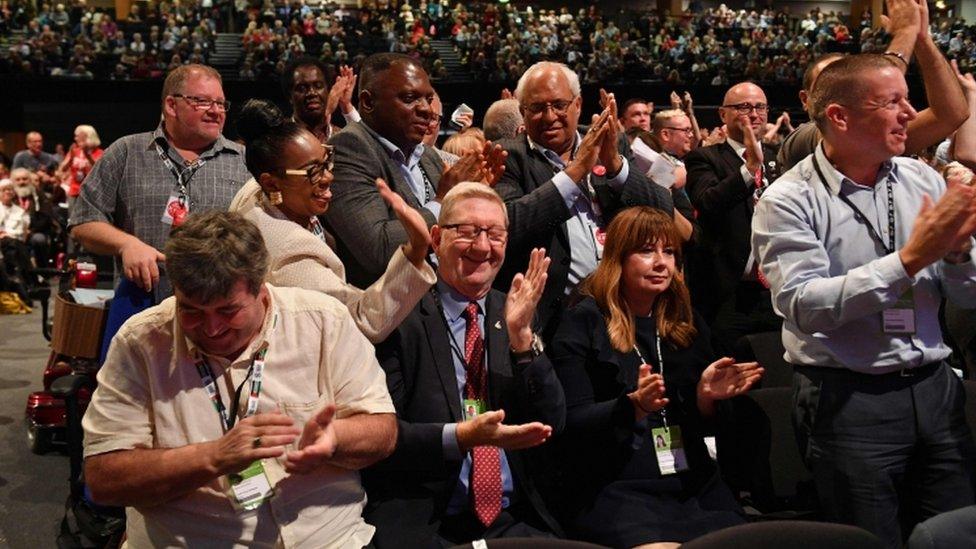
- Published22 September 2019
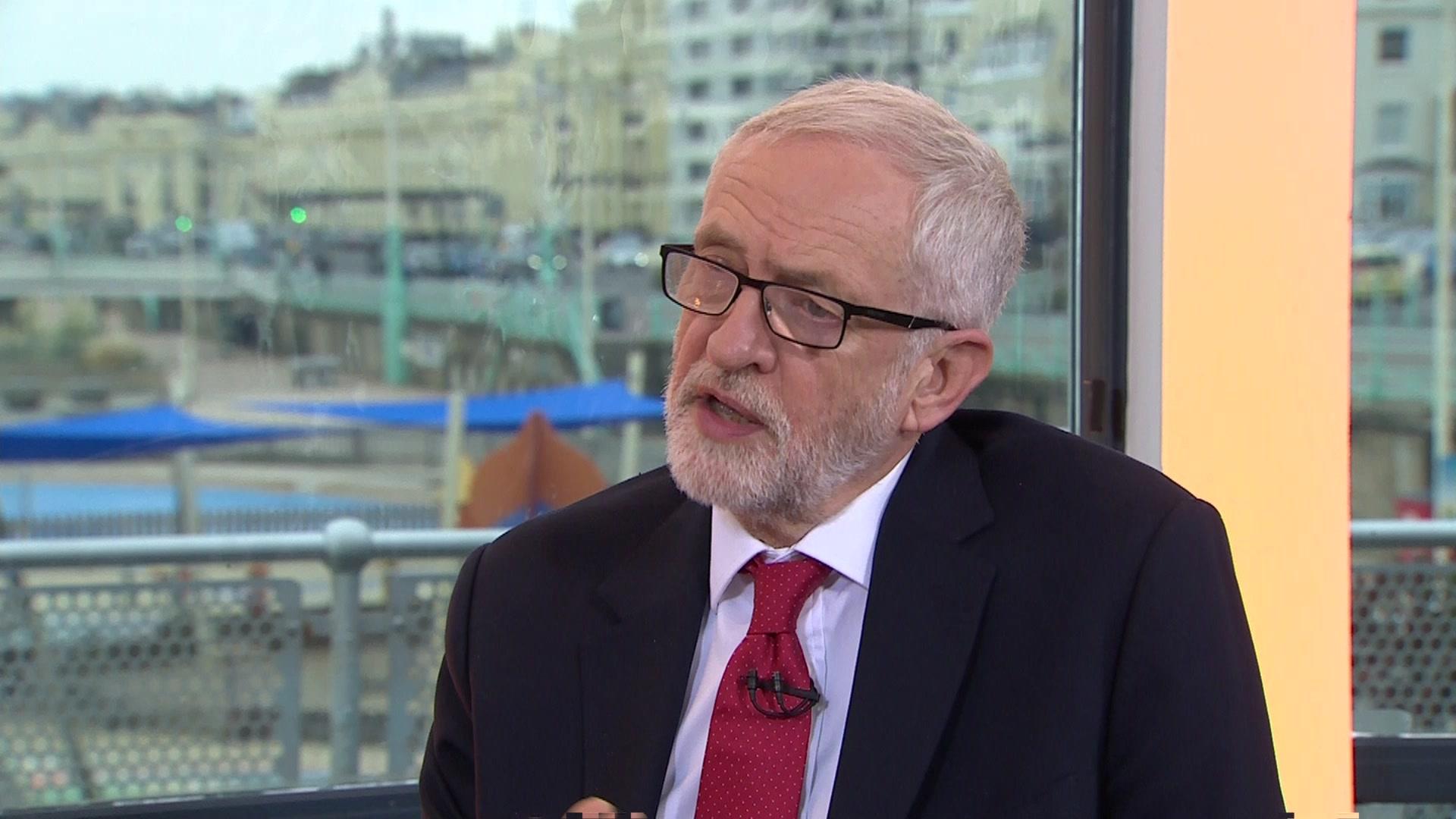
- Published21 September 2019
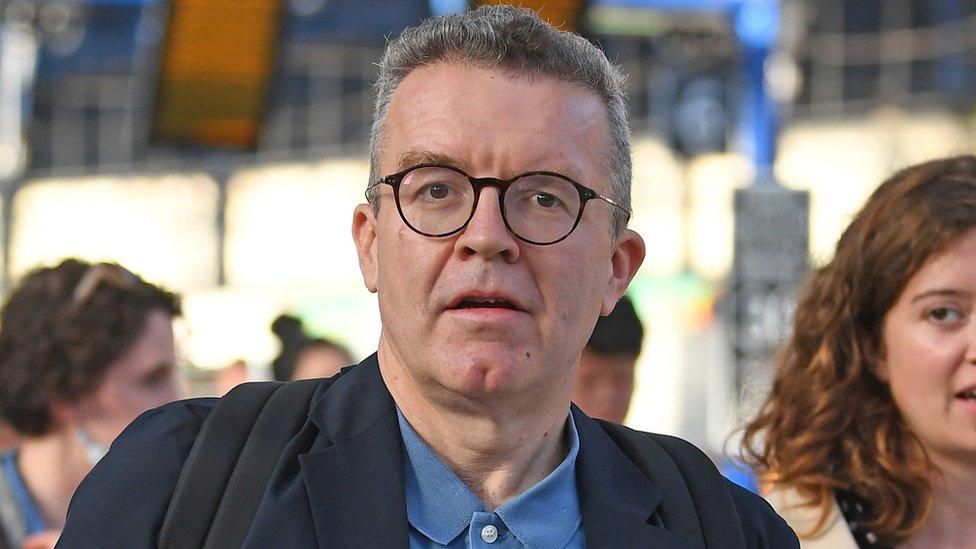
- Published21 September 2019